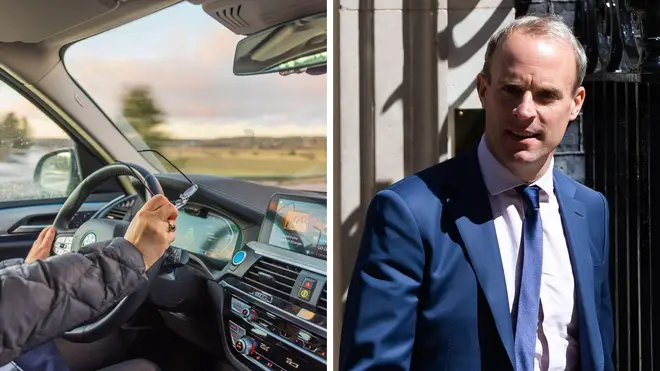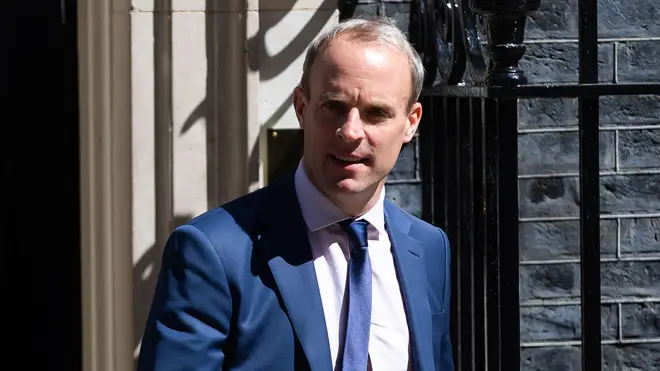
Ian Payne 4am - 7am
28 June 2022, 08:03

Killer drivers could be handed life sentences and police will be given stronger powers to crackdown on "guerrilla protests" as new laws come into force.
The dangerous driving crackdown is among new measures in the Police, Crime, Sentencing and Courts Act, which come into effect on Tuesday.
The maximum penalty for causing death by dangerous driving has been increased from 14 years to a life sentence.
Careless drivers who kill while under the influence of drink or drugs will also face potential life sentences.
Meanwhile, a new offence of causing serious injury by careless driving has been created.
Also included in the reforms are new measures on protesters and tougher sentences for child killers.
Changes also include mandatory life sentences for the unlawful killing of emergency workers. This is known as ‘Harper’s Law’ after PC Andrew Harper, 28, who was killed in 2019 while investigating a burglary.
Read more: Killer cyclists face prosecution under historic new law welcomed by campaigners
Read more: 'Andrew would be proud': Harper's Law will see criminals who kill police jailed for life

He died from his injuries when he was caught in a strap attached to the back of a getaway car and dragged down a winding country road as his teenage killers fled the scene of a quad bike theft in Sulhamstead, Berkshire, in August 2019.
Henry Long, 19, was sentenced to 16 years and 18-year-olds Jessie Cole and Albert Bowers were handed 13 years in custody over the manslaughter of the Thames Valley Police traffic officer.
All three were cleared of murder by a jury.
Under the act, the punishment for anyone who assaults emergency workers, such as police, prison officers, fire service personnel or frontline health workers, has been doubled to a maximum sentence of two years.
There are also changes in the law aimed at keeping serious sexual and violent offenders behind bars for longer and making the streets safer for women and girls.
Read more: Tougher measures to protect women include making street harassment a specific crime

Domestic abuse victims are to get more time to report common assault or battery crimes to police, and a new breastfeeding voyeurism offence could see anyone who takes photographs or video recordings of nursing mothers without their consent facing up to two years in prison.
Prime Minister Boris Johnson says the reforms come as the Government aims to "make our streets safer".
Mr Johnson said: "We have changed the law so that dangerous criminals are given the sentences they deserve and kept behind bars, and we are backing the police with the powers they need to keep us safe.
"We are well on our way to getting 20,000 more police officers, and we will continue to support victims seeking justice and bear down on crime so that everyone, in every town, village and city, has the security and confidence they deserve."
Meanwhile, whole-life orders will become the starting point for pre-meditated child murder.
Read more: Arthur Labinjo-Hughes: Grandfather says 'life should mean life' for his killers

Nick Ferrari challenges chair of the review into Arthur Labinjo-Hughes and Star Hobson's deaths
The crackdown follows high-profile cases of six-year-old Arthur Labinjo-Hughes and one-year-old Star Hobson.
Arthur was murdered by his stepmother Emma Tustin at their home in Solihull in June 2020, while Star was killed by her mother's girlfriend in Keighley in September 2020.
Read more: Star Hobson murder: Fury over delayed social services review as answers 'desperately needed'
Those who cause or allow the death of a child or vulnerable adult in their household could now be jailed for life.
Meanwhile, police are being given more powers to tackle non-violent protests that have a significant disruptive effect on the public or on access to Parliament.

Police confiscate Insulate Britain banners
It follows months of disruption on the roads by Insulate Britain and Extinction Rebellion.
An offence of intentionally or recklessly causing public nuisance is now available in an effort to crack down on disruptive "guerrilla protests".
Home Secretary Priti Patel said: "We are delivering on the people's priorities.
"Whether it's tackling knife crime, violence against women and girls or anti-social guerrilla protest tactics, these measures are all about backing the police and standing up for the law-abiding majority of the British public."